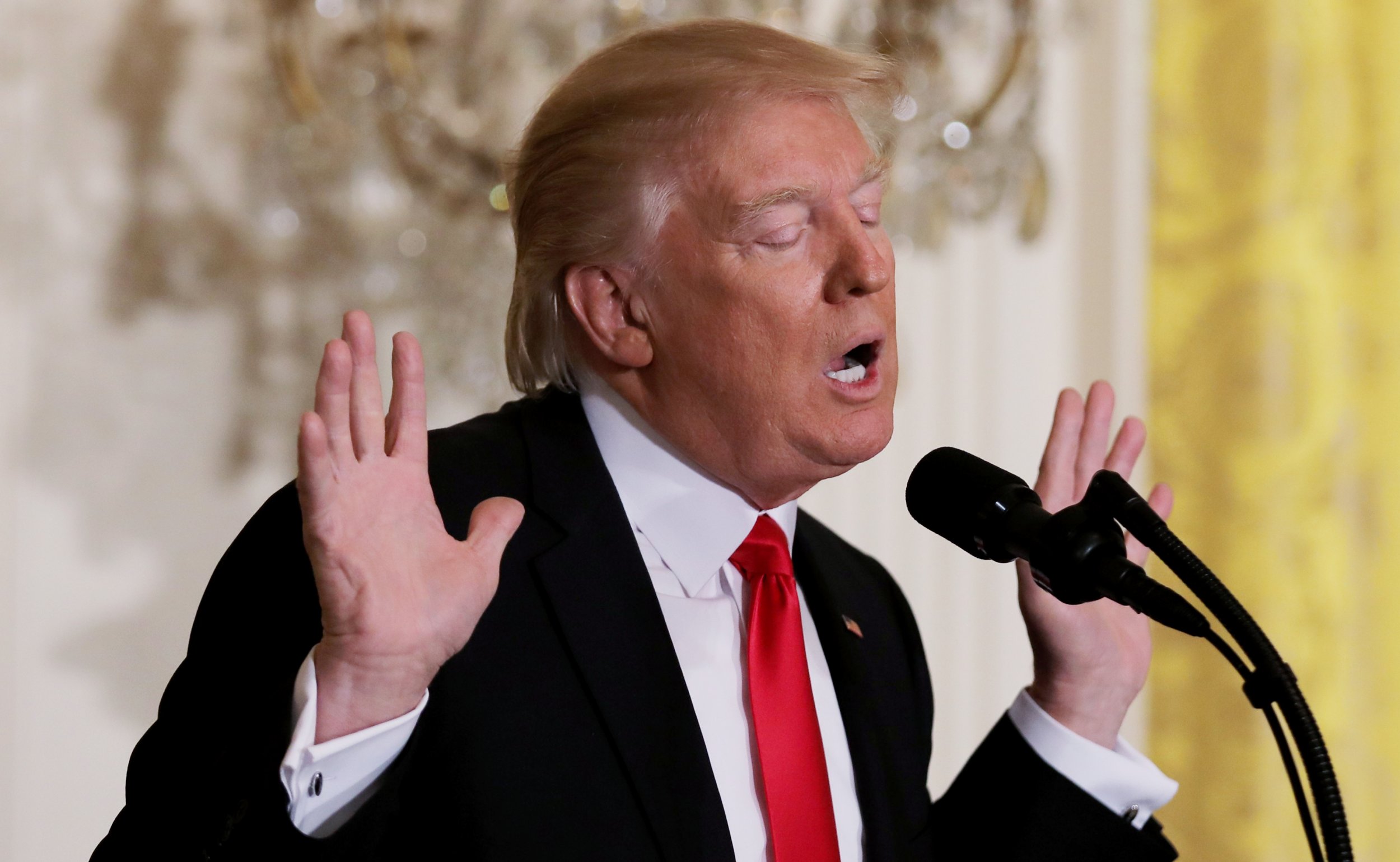
Translators worldwide are struggling to render Donald Trump's unique speaking style and Japanese interpreters are finding it a "nightmarish" experience, according to the Japan Times.
"He is so overconfident and yet so logically unconvincing that my interpreter friends and I often joke that if we translated his words as they are, we would end up making ourselves sound stupid," said Chikako Tsuruta, a professor at Tokyo University who covers Trump-related news as an interpreter for CNN, ABC and CBS.
"He rarely speaks logically, and he only emphasizes one side of things as if it were the absolute truth," she added. "There are lots of moments when I suspected his assertions were factually dubious."
The U.S. president's speaking style, which has been described as a " stream of consciousness," presents challenges even for Miwako Hibi, a Japanese broadcast interpreter with more than 20 years' experience. She remembers translating a speech and wondering who the Secretariat was, and mistranslating it as if Trump was referring to Reince Preibus. Hibi said: "It didn't even occur to me that he was talking about a race horse...It's really hard to follow his train of thought."
Agness Kaku, a Japanese translator and interpreter, admits that she has trouble with the U.S. president's seemingly disjointed speech. She wrote in a Linkedin post: "It's the sheer number of 'escape hatches' that he blasts into every sentence.
"I don't know, probably, maybe, I'm not sure, other people say, the lawyers say, I haven't looked at it, I'm not familiar...Where other candidates might have five outs tastefully embedded into the stonework, Trump will have twenty punched straight through load-bearing walls, edges still smoking. That's a problem for translation, which relies on the identification of ideas and intent."
Kaku explains that Trump's vagueness is often clarified for a Japanese audience, which removes innuendo from his speech.
Kaku gives an example: "What Trump actually said on ABC news: '[S]he probably, maybe she wasn't allowed to have anything to say, you tell me, but plenty of people have written that.'
"What was reported in NHK [Japan's national public broadcasting organization]: 'She likely wasn't allowed to give a statement.'
"What was reported on CNN Japan: 'It could be she wasn't allowed to speak.'"
Kaku's example shows how even if a translator has translated the phrase, it doesn't tell the whole story.
But some interpreters, like Tsuruta, are concerned that translating the U.S. president too accurately might reflect badly on them. Alina Cincan, a Romanian interpreter and translator, tells Newsweek: "He's not known for his eloquence nor his diplomacy. Either you translate exactly what he says which means it'll be repetitive and sometimes gibberish—you'll be saying 'tremendous', 'very' or 'great' a lot, or you try to make some sense out of it and 'beautify' it. If you choose the former, some may judge your interpreting abilities as poor, whereas if you choose the latter, you'll make him sound better."
"If Trump is not making sense, you don't get to make sense, either," said Kumiko Torikai, a retired Japanese translator. "If his language is coarse, that's the way you translate him."
Offensive words can throw up difficulties, however. After a recording emergency of Trump using "locker-room banter," as he put it, Victor Mair, a professor of Chinese at the University of Pennsylvania, commented on his blog how Trump's sentences change in Chinese media translations. "I moved on her like a bitch, and I could not get there, and she was married," became Wǒ xiàng duìdài dàngfù yīyàng kàojìn tā," or "I treated her like a slut to get close to her."
Trump's "lexical richness" is the lowest of any other president, according to research conducted by Carnegie Mellon University's language technologies Institute —findings apparently echoed by BBC Persian's bilingual presenter Siawash Ardalan, who recently spoke about Trump's podium style on BBC Radio Four. For the first few minutes, Ardalan says, the U.S. president "just says 'oh boy, oh boy, isn't it a lovely day' but it doesn't mean anything so we sort of 'dub' him [until he gets started]."
"Do I feel sympathy for the translators translating Mr Trump's speeches? Yes, by all accounts," said Sarah Mithrick, a freelance French translator.
"The difficulty is twofold: He speaks in broken English and short sentences (unlike the well-constructed speeches given by other state leaders) and it's hard to adapt this style to another language and provide a text suitable for a magazine or newspaper.
"Secondly, his speeches are specially tailored to the context and the audience, so when taken out of a strictly American context, the speech tends to lose meaning and impact."
Uncommon Knowledge
Newsweek is committed to challenging conventional wisdom and finding connections in the search for common ground.
Newsweek is committed to challenging conventional wisdom and finding connections in the search for common ground.
About the writer
To read how Newsweek uses AI as a newsroom tool, Click here.








